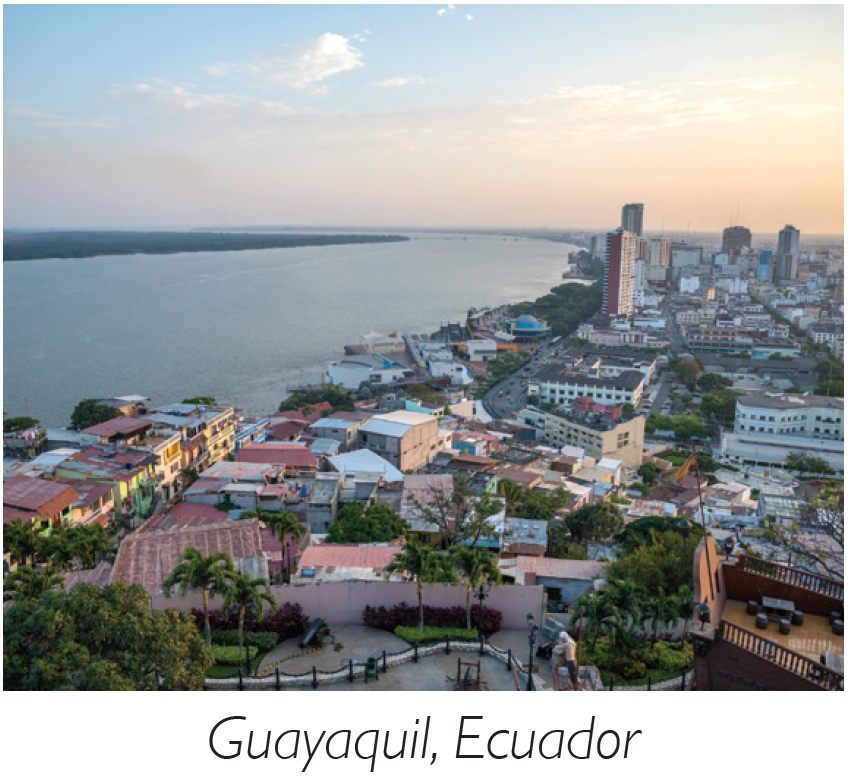Borrower Overview
TriLinc has provided financing to a sustainably focused tuna processor and exporter located in Manta, Ecuador. Founded in 1997, the company is engaged in purchasing, processing and exporting tuna and tuna products to international off-takers located in Europe, Asia, North America, and South America. The company manages six proprietary fishing boats of various sizes and also sources its tuna from local suppliers. The company holds an environmental license from the Ministry of the Environment, is Dolphin-Safe certified by the Earth Island Institute, HACCP certified by the Ecuadorian National Fisheries Institute for food safety, and holds ISO 9001 quality management system and ISO 14001 environmental management system certifications. With one of the most technological and up-to-date tuna processing plants in the region, the company produces various types of canned, pouched, and jarred tuna, all customized to meet the quality standards of their customers. The borrower is dedicated to the wellbeing of its employees, of which 58% are female, as evidenced by their extensive new hire training programs, financial incentives for outstanding performance, and human resource studies to effectively measure the happiness and efficiency of its employees. The borrower anticipates that TriLinc’s inventory financing will support the borrower’s anticipated 30% increase in processing capacity in the next three years, requiring the company to add another work shift and substantially increase its workforce.
 |
 |
Market Overview

Ecuador is classified as an upper middle-income country by the World Bank.1 Between 2010 and 2016, annual GDP growth rates averaged approximately 3.5%.1 Ecuador’s adoption of the U.S. dollar as its official legal tender in March 2007 fueled this growth and enhanced trade flows. Today, Ecuador is one of three Latin American countries that has fully “dollarized” their economy.3 Ecuador’s main exports are concentrated in petroleum, bananas, cut flowers, shrimp, cacao, coffee, wood, and fish.2 Conversely, the country’s main imports are focused in industrial materials, fuels and lubricants, and nondurable consumer goods.2
Ecuador meets TriLinc’s country standards for its performance across relevant growth, stability, and access metrics.4 As the seventh largest economy in the Latin America and Caribbean region5 with a GDP of $98.6 billion, Ecuador enjoys stable macroeconomic conditions and relatively well-developed infrastructure, which have led the country to benefit from the $272.3 billion in net foreign direct investment that was estimated to have flowed into the region in 2016.6 The annual GDP growth rate for the region is forecasted at 2.5% in 2019.7
Additional Sustainability & Impact Highlights
- Employees have access to full medical services on site, along with childcare support for their children, as many of the employees are single mothers.
- The company has implemented a lending program for its employees to be more economically stable and substantial support has been provided to the company’s employees and their families during natural disasters, including counseling services, and supplying mattresses, tents, and drinking water.
- The majority of wastewater from processing is recycled and used to maintain a local soccer field, in addition to the company’s proprietary farm, where it started to grow different types of vegetables to be added into varieties of their processed tuna products.

1The World Bank, World Development Indicators Database, Ecuador, 2016. 2CIA, The World Factbook, 2016: Ecuador. 3Investopedia, Countries that Use the U.S Dollar, 2015. 4There is no assurance that our investment in this company or this market will be successful. 5The World Bank, World Development Indicators Database, 2016. 6The World Bank, Data, Latin America and the Caribbean, 2016. 7The World Bank, Global Economic Prospects, June 2016.
The above information is as of the initial date of investment: January 19, 2017.
This borrower is no longer in TriLinc’s portfolio.
TriLinc originally performed an SDG mapping exercise in December 2017 to map all of our borrower companies, both current and exited from our portfolios, to specific SDGs based off of business activity. TriLinc’s official SDG alignment methodology was not finalized until June 30, 2018. For borrowers that had exited TriLinc’s portfolios prior to this time period, the selected SDGs for these borrower are a reflection of what TriLinc believes would have been the SDG alignment if 1) the SDGs had been in effect and 2) TriLinc had integrated the SDG alignment while the company was in the portfolio. The SDG mapping presented does not include input from Investment Partners or borrower companies given that the companies were no longer in the portfolio when the alignment was finalized.
RISK FACTORS
There is no guarantee that TriLinc’s investment strategy will be successful. Investment in a non-listed LLC involves significant risks including but not limited to: ownership is restricted; no secondary market; limitation on liquidity, transfer and redemption of ownership interest; distributions made may not come from income and, if so, will reduce the returns, are not guaranteed and are subject to management discretion. TriLinc selects investments and conducts operations on behalf of its clients, and will face conflicts of interest. Investment with TriLinc is not suitable for all investors. Securities Offered through CommonGood Securities, LLC, a member of FINRA and SIPC.
An investment with TriLinc carries significant fees and charges that will have an impact on investment returns. Information regarding the terms of the investment is available by contacting TriLinc. This is a speculative security and, as such, involves a high degree of risk. Investments are not bank guaranteed, not FDIC insured and may lose value or total value. Some investments may have been made in an investment vehicle that is no longer open for investment. The highlighted investment may or may not have been profitable. There is no guarantee that future investments will be similar.
Want to learn more? Contact Us.
